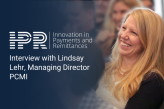Video: Better Together – The money transfer ecosystem July 26, 2022

Continuing our recent discussions exploring the evolution of the remittance sector, RemitONE hosted their IPR EMEA event on 2-3 March 2022. The 90-minute panel session centred around the money transfer ecosystem, partnerships and collaboration
The panel consisted of experts from both RemitONE and our friends and partners in other global companies. In case you missed the discussion, here is a summary of the key insights.
Webinar moderator:
- Selim Mohamdi, Business Development Manager, RemitONE
Panellists:
- Wayne Gould, Head of Direct Sales and Financial Services, Trust Payments
- Priscilla D. Friedman, COO, CrossTech
- Muhammad M. Jagana, CEO, Kuringo
Time Stamps
00:00 Introductions
03:55 How significant is the remittance industry and who are the traditional and new players in the ecosystem?
07:55 How does partnering with payment gateways assist money transfer operations?
12:31 Can you provide some examples of other successful partnerships, and why they work?
16:57 What are the developing trends within our ecosystem and what is RaaS?
19:55 What do you see as the future of payment gateways? And what can we expect to see in this space?
27:40 How can MTOs leverage partnerships to expand their networks without necessarily having a presence in that country?
29:55 What are the critical questions to ask when evaluating a payment vendor or a technology partner?
How significant is the remittance industry and who are the traditional and new players in the ecosystem?
Priscilla: The remittance industry has transformed rapidly in the last five years, and is becoming very digital. With this new transformation and globalisation, specifically during the pandemic, many money remittance service providers must focus on digital remittances to enhance their business and provide faster transactions to clients, and agents must also provide services digitally to their clients.
But the industry has become much more than just remittances. With new services such as B2C fuelled by the gig economy and B2B fuelled by e-commerce, those markets are 10 to 20 times larger than remittances. Money transfer providers are using their technology and experience to grow into segments. The traditional players in the markets are MoneyGram and Western Union, and some of the new players are Wise, Azimo and Currency Direct. As I navigate this industry, I learn every day, that new FinTechs are coming into the market with new solutions involving money transfer, digital banks, and many more.
So many different types of partnerships exist in the remittance ecosystem. How does partnering with payment gateways assist money transfer operations?
Wayne: I think the first key thing here is that the payment gateway provider needs to be able to cover all of the payment touch points. For these merchants who did not have payment methods like a simple POS machine to collect payments, they really struggled. Now on the other side of this, we collaborate very well with our merchants, enabling them to collect payments not just face to face, but also helping them digitalise their entire platform.
In addition to all of this, the right payment partner would also allow you to process funds in different currencies, as well as settle them in a multi-currency account. This is a very crucial SLM, simply because with remittances, the competition is quite rife now and margins can be quite low. So, to partner with a payment gateway, who could provide not just the technology, but also a solution that is very cost-effective, is a match made in heaven.
Can you provide some examples of other successful partnerships, and why they work?
Muhammad: Partnership is how we built our entire company. We believe that today, with technology, you do not need to build, you just need to plug and play. What we have done over the last 12 months, as a start-up, was to focus on how to expand our footprint. How do we plug in technology easily? How do we go to market where we are not? It is either you raise a multibillion-dollar fund, or you go and partner with people. Today we have seen instances where technology has made it more accessible for customers and to deliver a vast distribution network. As a result, it is uncomplicated and straightforward because we don’t have to worry about building the technology; we partner with it.
What are the developing trends within our ecosystem and what is RaaS?
Priscilla: So, innovation is improving, as we have been discussing. Digitalisation, the rise in mobile-based platform channels and cross-border transactions, and the decrease in remittance transfer time and cost drives the growth of the market.
RaaS (Remittance as a Service) is a go-to solution for many MSBs, Fintechs and small businesses and is a solution that we recommend to clients in our consulting division. So, we have the solutions that are focused on technology providers, we have some that are focused on licensing and reporting, and we also have some that are providing banking as well. Right now, we are seeing a new trend where we see a one-stop solution. But one point that is important to say is that some clients may already have some part of the solution developed. So, it is good to partner with companies that can marginalise what your need is, instead of just giving everything.
What do you see as the future of payment gateways? And what can we expect to see in this space?
Wayne: Payment gateways will always form and will always be an integral part of card payments because that is what is bridging the gap between our MSBs and their customers who want to pay. In terms of keeping up with trends, crypto is something that is picking up a lot of pace in a lot of areas and blockchain-based pay-outs, are something that is being pioneered by Ripple now. These are things that we’ll be seeing for payment methods of the future when it comes to things like payouts. In the days to come, as businesses start to evolve, requirements start to evolve. It is very critical that payment gateway or technology providers within the payment space can adapt and rise to the demands of our customers and our merchants.
How can MTOs leverage partnerships to expand their networks without necessarily having a presence in that country?
Muhammad: What we have seen, especially with our experience over the last year, is that technology has brought down the cost of integration and there is a lot of interoperability. Now, people have realised that you do not have to be a big standalone and everybody seems to be building their own small, quiet part of the jigsaw puzzle. When there is somebody who has already built a network and aggregator, this is your way in. So, you can just plug into their platform. Our clients from Europe, for example, can easily send money from a wallet or mobile phone account to your bank account, and we can also easily be in about three or four countries just by switching on a plug somewhere.
What are the critical questions to ask when evaluating a payment vendor or a technology partner?
Wayne: I think the first one is do they understand your business? I think that’s very important because everyone wants to help everybody but help needs to come in the right way. To work with a payment provider that understands the ins and outs of the business is very, very crucial. And things like, what certification or who regulates them as an acquirer, or as a technology provider is also very important.
When it comes to things like the technology, and asking them the types of platforms they work with, for the pay-ins and pay-outs, as well as what kind of security features that come with the gateway. Does it offer fraud screening? If it does, what does it run? What does it check for? And so on. These are some questions that could be interesting for an MSB to ask their provider. Another feature, which is quite important, is how soon can they settle their funds? Obviously, with remittances, we understand that funds coming in is as important as funds going out. So quicker settlements are imperative when it comes to this industry.
Priscilla: One of the things that I always ask Fintechs or MSBs who are looking for solutions is how many transactions are you looking to transact to your start-up? Are you a midsize business? That is very important because different payment providers have different tools, and they are also looking for a specific target. In addition, from a payment provider view, one of the questions that I also ask is module customisation, do you have modules for different clients? How flexible are the payment provider solutions in providing modules that are specific to that client’s needs?
For more information or to request a free consultation with one of our money transfer specialists, please email marketing@remitone.com
What next?
Now that you’ve read our article we want to help you get the most out of it and plan for the rest of 2022.
Tap into our experts and schedule a free consultation.
Related Posts
-

Driving Innovation and Customer Trust: The Role of Compliance, Speed, and Transparency in the Evolving Payments Landscape | IPR Global 2024
In today’s fast-evolving payments landscape, security, compliance, and customer expectations are more interconnected than ever. As businesses strive to innovate…
November 14, 2024 -

The Future of Payments and Remittances: Innovations, Real-Time Payments, and Global Financial Inclusion | IPR Global 2024
The payments and remittance industry stands on the brink of remarkable transformation, driven by innovative technologies, evolving consumer expectations, and…
November 14, 2024 -

Interview with Sid Gautam, Senior Vice President, Flutterwave | IPR Global 2023
We sat down with Sid Gautam from Flutterwave during our IPR Global event, to find out the key challenges and…
June 4, 2024 -

Interview with Lindsay Lehr, Managing Director, PCMI | IPR Global 2023
We interviewed Lindsay Lehr from PCMI during our Innovation in Payments and Remittances (IPR) Global event, to share her thoughts…
April 29, 2024 -

Interview with Wayne Gould, former Head of Financial Services, Trust Payments | IPR Global 2023
We interviewed Wayne Gould, former Head of Financial Services at Trust Payments, during our Innovation in Payments and Remittances (IPR)…
March 28, 2024 -

Saudi Arabia and the GCC: How to Tap into one of the World’s Biggest Payments Markets | IPR Global 2023
Join us for an enlightening panel discussion where our expert panellists will delve into the dynamic landscape of payment and…
February 29, 2024